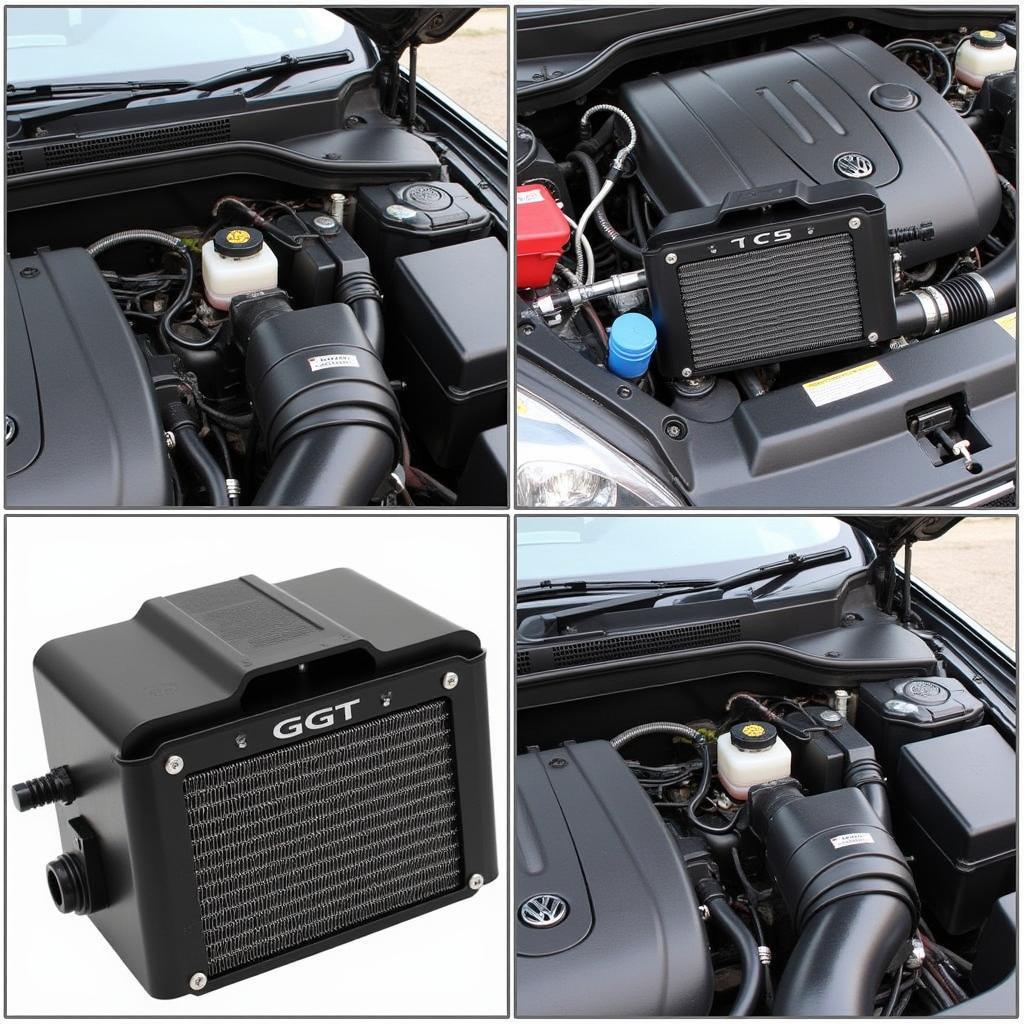Your cart is currently empty!

Measuring MK5 GTI DSG Fluid Temp Without VCDS: A Comprehensive Guide
Knowing your DSG transmission fluid temperature is crucial for the health and longevity of your MK5 GTI. While VCDS is the go-to diagnostic tool, you can still effectively measure your DSG fluid temp without it. This guide explores various methods, offering practical advice for both DIY enthusiasts and professional mechanics.
Why Monitor DSG Fluid Temperature?
Excessive heat is the enemy of automatic transmissions, and the DSG in your MK5 GTI is no exception. Overheating can lead to premature wear, damaged seals, and even complete transmission failure. Monitoring your DSG fluid temperature allows you to identify potential problems early on and take preventative measures. It also helps you gauge the effectiveness of your cooling system, especially after performance modifications or during spirited driving.
Methods for Measuring MK5 GTI DSG Fluid Temp Without VCDS
While VCDS offers precise readings, there are alternative methods you can use:
- Infrared Thermometer: This is a quick and non-invasive way to get a temperature reading. Aim the thermometer at the transmission pan, ensuring a clean surface for accurate measurement. Keep in mind that this method provides a surface temperature, not the internal fluid temperature, which is generally higher.
- Scangauge or Similar OBD2 Devices: These devices can access some transmission data through the OBD2 port, including fluid temperature in some cases. Check the device’s compatibility with your MK5 GTI before purchasing.
- Dedicated Transmission Temperature Gauge: This involves installing a physical gauge connected to a sensor placed in the transmission fluid pan. This provides the most accurate real-time readings but requires some mechanical work.
 Measuring DSG Fluid Temperature with Infrared Thermometer
Measuring DSG Fluid Temperature with Infrared Thermometer
Understanding Your DSG Temperature Readings
Once you’ve obtained a temperature reading, how do you know if it’s within acceptable limits? Generally, DSG fluid temperatures should stay below 220°F (104°C) under normal driving conditions. Temperatures exceeding 250°F (121°C) indicate potential overheating and require further investigation.
What Causes High DSG Fluid Temperatures?
Several factors can contribute to high DSG fluid temperatures:
- Low Fluid Level: Insufficient fluid reduces the cooling capacity.
- Worn Out Fluid: Old, degraded fluid loses its ability to dissipate heat effectively.
- Faulty Cooling System: Issues with the transmission cooler or its lines can restrict fluid flow and cooling.
- Aggressive Driving: Track days or spirited driving puts extra strain on the transmission, generating more heat.
 Checking DSG Fluid Level on MK5 GTI
Checking DSG Fluid Level on MK5 GTI
MK5 GTI DSG Fluid Temperature and Performance Tuning
Performance modifications that increase engine power often lead to higher DSG temperatures. If you’ve tuned your MK5 GTI, monitoring fluid temperature is even more critical. Consider upgrading your transmission cooler or installing an auxiliary cooler to maintain optimal operating temperatures.
How often should I check my DSG fluid temperature?
Regular checks, especially before and after spirited driving or long trips, can help identify potential problems early.
“Regularly monitoring your DSG temperature is like taking your car’s pulse. It’s a simple check that can save you from costly repairs down the road,” says John Miller, a seasoned automotive technician with over 20 years of experience.
 Installing an Auxiliary DSG Cooler on MK5 GTI
Installing an Auxiliary DSG Cooler on MK5 GTI
Conclusion
Measuring your MK5 GTI DSG fluid temp without VCDS is possible and crucial for maintaining transmission health. While VCDS offers precise readings, alternative methods like infrared thermometers and OBD2 scanners can provide valuable insights. Regular monitoring and understanding the factors influencing DSG temperature will help you keep your GTI performing at its best. For further assistance or more specialized diagnostic tools, feel free to connect with us at +1 (641) 206-8880 and our email address: vcdstool@gmail.com or visit our office at 6719 W 70th Ave, Arvada, CO 80003, USA. You can also find a range of diagnostic tools, including VCDS, on vcdstool.
by
Tags:
Leave a Reply